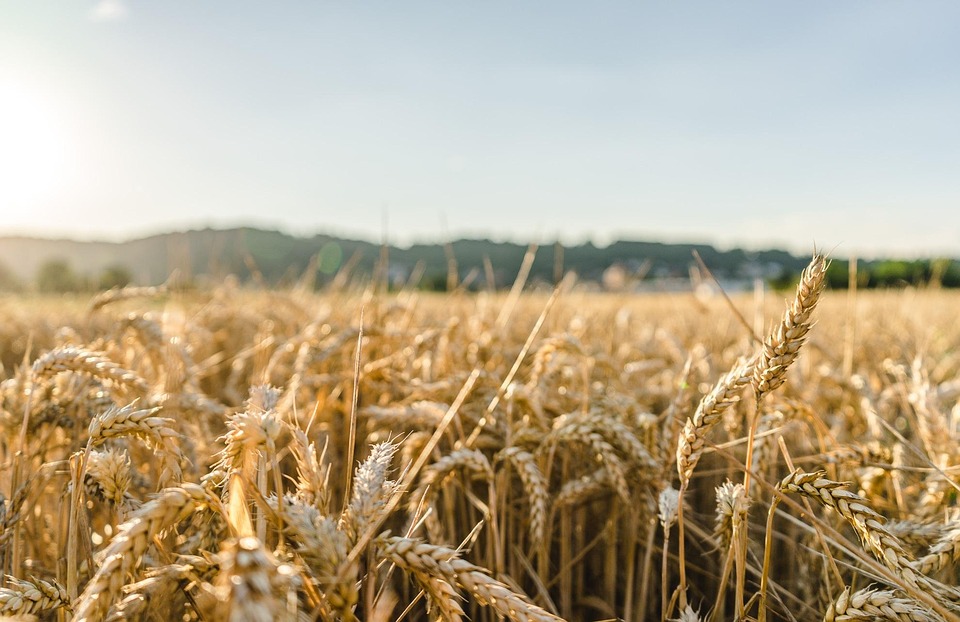# Farming Under Pressure: Adapting Sustainable Practices in a Changing Climate
One sunny afternoon, while tending to my small garden, I spotted something unusual: a bumblebee hovering curiously over a sprig of lavender. It reminded me of how vital these little creatures are in our ecosystem, especially as changing climate patterns begin to create challenges for sustainable farming. This scene wasn’t just picturesque; it encapsulated the balance between nature and farming practices. As trees swayed and the wind whispered through my crops, I realized the importance of adapting to our climate’s whims. The truth is, Mother Nature is not what she used to be, and as farmers, it’s our responsibility to respond to her changes with innovative, eco-friendly methods.
## Understanding the Shift in Farming Dynamics
Climate change is not a distant concern—it’s a present reality. Year after year, we see the rising temperatures, erratic weather patterns, and increased instances of pests. Farmers today are not just growing food; they are becoming climate warriors in their own right, adapting and innovating to ensure their practices are sustainable and resilient.
### The Ripple Effects of a Changing Climate
Higher temperatures not only affect crop viability but also influence pest behavior, soil health, and water availability. Consider this: what if your favorite heirloom tomato variety suddenly decided it couldn’t handle the increased heat? Or if the consistent rainfall you relied on turned into sporadic showers, putting your entire harvest at risk? Farmers must think creatively, utilizing sustainable practices that can withstand these pressures while still delivering fresh, nutritious produce.
### Embracing Sustainable Practices
Sustainable farming may sound like just another buzzword, but it embodies much more than that. It’s a holistic approach that combines environmental health, economic profitability, and social equity. Here are some effective sustainable practices that can assist in the fight against climate-related challenges.
#### 1. Crop Rotation for Resilience
One of the oldest and most effective methods involves rotating crops. By varying what you grow in different seasons, you can improve soil health and reduce pest populations. For example, alternating between legumes, which enrich soil nitrogen, and leafy greens can create a thriving ecosystem that maximizes yield while minimizing the need for chemical fertilizers.
#### 2. Permaculture Techniques
Permaculture is all about working with nature rather than against it. It utilizes nature’s patterns and principles to create sustainable agricultural systems. Consider integrating guild planting, where complementary plants are grown together to support each other’s growth. For instance, growing tomatoes alongside basil can improve flavor while deterring harmful pests.
### Water Management Strategies
As rainfall becomes less predictable, efficient water management becomes more critical.
#### 3. Rainwater Harvesting and Conservation
Collecting rainwater can supplement your water supply, especially during dry spells. Installing a rain barrel or a larger collection system helps capture and store water, reducing reliance on municipal sources and enhancing sustainability.
#### 4. Drip Irrigation Systems
Drip irrigation is a targeted method that delivers water directly to the plant roots, reducing waste and ensuring more efficient usage. This method allows farmers to use less water and can significantly reduce erosion and soil runoff.
### Soil Health: The Foundation of Sustainability
Healthy soil is essential for productive farming, and it is also a crucial player in climate resilience.
#### 5. Composting and Organic Matter Addition
Adding compost not only improves soil structure but also enhances its ability to retain moisture. Regularly incorporating organic matter feeds beneficial microorganisms and adds essential nutrients, making it more resilient to adverse weather.
### Biodiversity: Nature’s Insurance Policy
Diversity isn’t just a buzzword in the ecosystem; it’s a protective armor against climate threats.
#### 6. Encouraging Pollinators and Beneficial Insects
Creating habitats for pollinators and beneficial insects can enhance biodiversity on your farm. Planting native flora, providing nesting sites, and avoiding chemical pesticides are simple yet effective ways to support these critical species. More flowers mean more pollinators, which translates into healthier crops.
### Community-Based Solutions
Building a community around sustainable farming can amplify your efforts.
#### 7. Sharing Resources and Knowledge
Participating in local farming co-ops can provide access to shared resources, such as equipment or seeds that are climate-resilient. Informational workshops and community support can also inspire innovative practices, spreading valuable insights and encouraging collaboration.
### Pro Tips for Adapting Sustainable Practices
1. **Start Small**: If you’re new to sustainable methods, begin with one practice at a time. It could be as simple as starting a compost pile or planting a cover crop.
2. **Keep an Eye on Local Weather Patterns**: Implement a weather monitoring system that helps you plan your farming activities in alignment with changing conditions.
3. **Network with Fellow Farmers**: Establish connections and share experiences with nearby farmers who may be facing similar challenges. Finding solutions together can foster resilience in your community.
4. **Stay Educated**: Keep up-to-date with agricultural research focused on climate change and sustainable practices. Attend workshops or webinars to strengthen your knowledge base.
5. **Experiment with New Varieties**: Don’t hesitate to test out climate-resilient varieties that may thrive better under changing conditions.
### The Future is Bright
As stewards of the land, it’s inspiring to see how farmers across the globe are turning crises into opportunities. Adapting sustainable practices is not merely about enduring climate change; it’s about thriving within it.
### Closing Thoughts
Farming under pressure creates unique challenges, but it also uncovers incredible innovations and community building. Let’s embrace the changes that come with climate variability and become champions of sustainable farming. By leveraging adaptive techniques and sharing knowledge, we can cultivate food systems that are not only resilient but also deeply embedded in the natural world. Join the movement; the future of farming relies on it!



